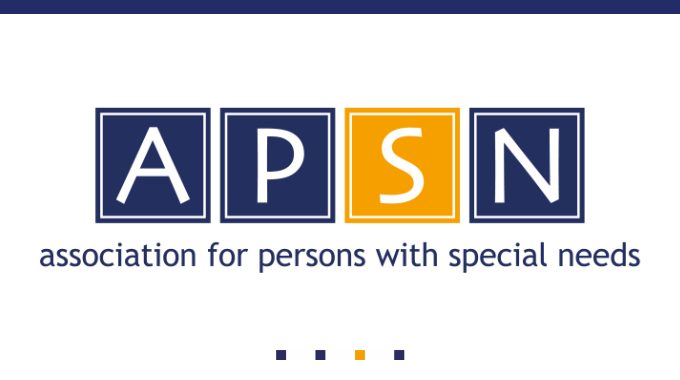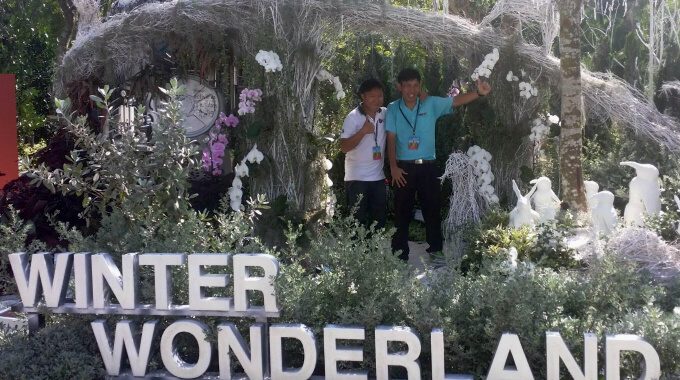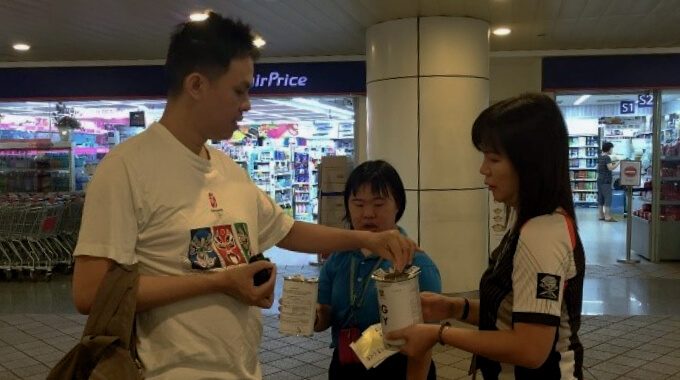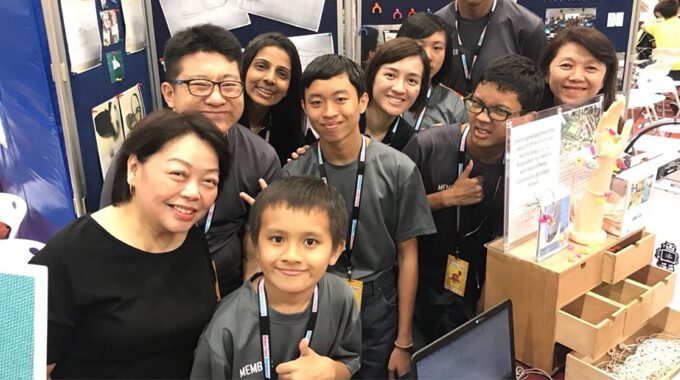
APSN Tanglin School Principal Mrs Liza Ow: Marking 30 Years of Unending Fire for Special Education
This year, Mrs Liza Ow, Principal of APSN Tanglin School (TS), celebrates her 30th work anniversary at APSN. She shares nuggets of wisdom in this special interview regarding her principles on teaching and leadership, and her unending fire for special education.
Please share with us your journey at APSN.
I started my journey in special education (SPED) in 1990 and have been with APSN for 30 years. I started as a Teacher in the then Katong Special School before becoming Principal of the same school in 2003; thereafter, I was posted to APSN Tanglin School in 2005.
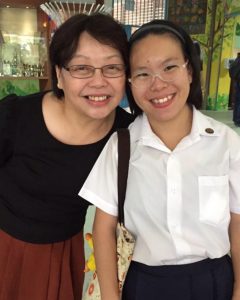 As my journey in special education took flight, I began to discover that teaching is more than having the students pass exams, it is a complex affair with depth, breath and a power that is seldom recognised.
As my journey in special education took flight, I began to discover that teaching is more than having the students pass exams, it is a complex affair with depth, breath and a power that is seldom recognised.
Rudyard Kipling once said, “No printed word nor spoken plea can teach young minds what they should be. Not all the books on all the shelves, but what the teachers are themselves.”
To me, teaching is a calling. There are many invaluable lessons that I could learn from my students, challenging me to acknowledge their diverse learning styles, abilities and dispositions, transforming my assumptions about the students, and inventing new methods to teach innovatively.
What are your guiding principles after your decades-long journey with APSN?
Education is not about filling up a pail, but the lighting of a fire. – William Butler Yeats
To me, the minds of students are not empty vessels. Each of them possesses unique gifts and talents, and it is my job to uncover and empower that genius.
Expressing concern for our students can be very challenging, especially when we encounter unforeseen circumstances. But staying positive when the going gets tough can have a tremendous impact on the students and everyone around us.
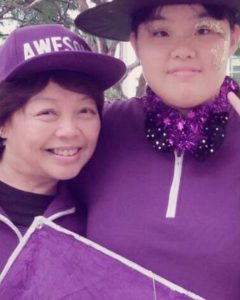 I still think that I may not have done enough to tend the soil; to look at every flower or to be soaked into their beauty. But each child’s innocence, gentleness and their trust in me – these are the things that I will always treasure. My goal is not about reaping the harvest, but I am called to plant and nurture the seeds that will grow and be shaped for tomorrow.
I still think that I may not have done enough to tend the soil; to look at every flower or to be soaked into their beauty. But each child’s innocence, gentleness and their trust in me – these are the things that I will always treasure. My goal is not about reaping the harvest, but I am called to plant and nurture the seeds that will grow and be shaped for tomorrow.
What does it mean to be a boss when toughness is interpreted as meanness, and gentleness is seen as weakness?
School leaders face several challenges today, including finding ways to instil change in this increasingly borderless economy, and teaching students how to think strategically, recognise patterns, and anticipate problems and opportunities before they occur.
As we face global competitions, reflective thinking and learning from experiences help to discover emerging innovative ideas, which includes changing our own assumptions about how to be successful. We cannot cling to what could have worked in the past. Neither can we afford leadership styles that suppress and intimidate others for self-directed change to work. When changes are implemented rapidly to sustain organisational success, I am always mindful that it is the people in the school who have to implement the technical solutions to effect the change.
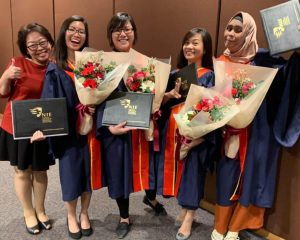 I cannot afford to think of the school as a machine, or my team members as a collection of replaceable parts to be re-engineered. Instead, I focus on re-organising the school’s resources to gain a competitive edge in the environment, made possible only by harnessing the strengths and efforts of every member in the school. Joining hands to accomplish the important things that we cannot accomplish alone will thus support the school’s capacity to grow its intelligence and adapt to change.
I cannot afford to think of the school as a machine, or my team members as a collection of replaceable parts to be re-engineered. Instead, I focus on re-organising the school’s resources to gain a competitive edge in the environment, made possible only by harnessing the strengths and efforts of every member in the school. Joining hands to accomplish the important things that we cannot accomplish alone will thus support the school’s capacity to grow its intelligence and adapt to change.
I strongly believe that unless the sensitivities, needs and feedback of the people in the school are attended to, the results may be counterproductive and efforts to implement change may become futile. To create lasting change and to stay relevant, the notions of attitude and mind-set are essential. Only when a critical mass of people has taken ownership and responsibility to embrace the planned change, the school will be assured of a competitive advantage in the special education space.
How do you keep the teams under you united and together?
To me, power and control-based structures could create chaos and separation between organisational functions which may prevent people from working well together.
Leaders, who do away with top-down, tell-oriented approach, are able to empower people to adjust, adapt, master and pattern their lives to face change. It is the good working relationships that strengthen an organisation’s ability to survive in this rapidly changing marketplace.
A good analogy for this would be that of a jazz band, in which members do not decide the exact notes to play during a performance, but instead, decide in advance the kind of musical composition. When the performance begins, everyone has a shared understanding of the musical genre, but musicians are also free to explore and innovate within the same rhythmic structure. In doing so, they can engage in anticipated, opportunity-based action during the course of their performance to create an effective response to meet the expectations of the audience.
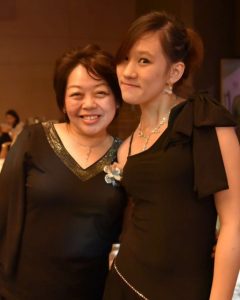 This analogy exemplifies how members of the school community could perform as a band in unity, regardless of individual differences, as they strive to nurture and prepare our students for life in a globalised world. In the same vein, my team at APSN Tanglin School is empowered with the autonomy, skills and freedom to explore as if ‘there is no box’. A culture of trust has been developed, where genuine mistakes are celebrated as nuggets of learning and problems are discussed openly for constructive feedback.
This analogy exemplifies how members of the school community could perform as a band in unity, regardless of individual differences, as they strive to nurture and prepare our students for life in a globalised world. In the same vein, my team at APSN Tanglin School is empowered with the autonomy, skills and freedom to explore as if ‘there is no box’. A culture of trust has been developed, where genuine mistakes are celebrated as nuggets of learning and problems are discussed openly for constructive feedback.
What does One APSN mean to you?
Every individual in APSN has a specific role to play, a function to perform, a purpose to fulfil.
One APSN is about empowering every individual member to perform at their fullest potential in an environment that invokes creative thoughts. It is a learning organisation that seeks to create its own future; an organisation that develops, adapts and transforms itself in response to the aspirations of its people to create the results they truly desire, a place where everyone has the ability to exercise their human capacities to achieve APSN’s vision, mission and goals.
What is your vision for the SPED sector in Singapore?
“Caring nation, inclusive society” (3rd Enabling Masterplan, 2017-2021). The gift of life must be protected and cared for in all circumstances. Every child, including a child with special needs, deserves the Respect accorded to all people and should be Empowered to live and participate actively and meaningfully in the community.
